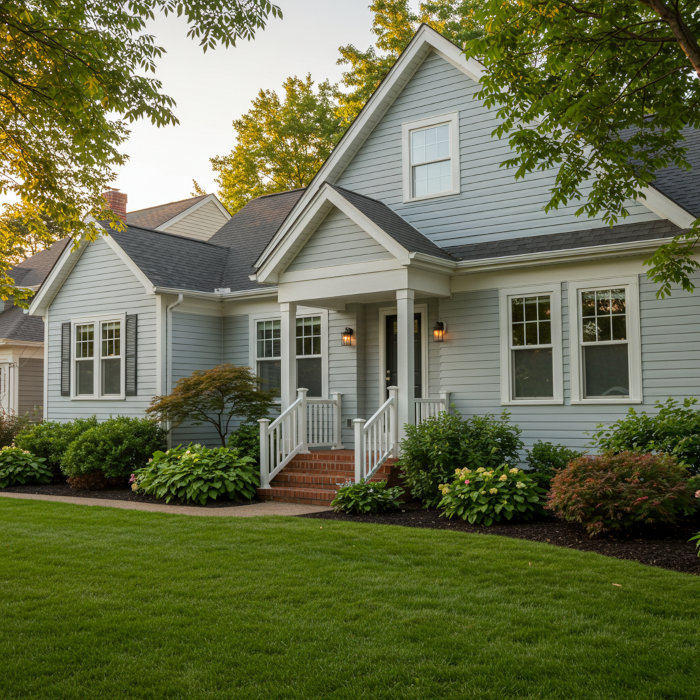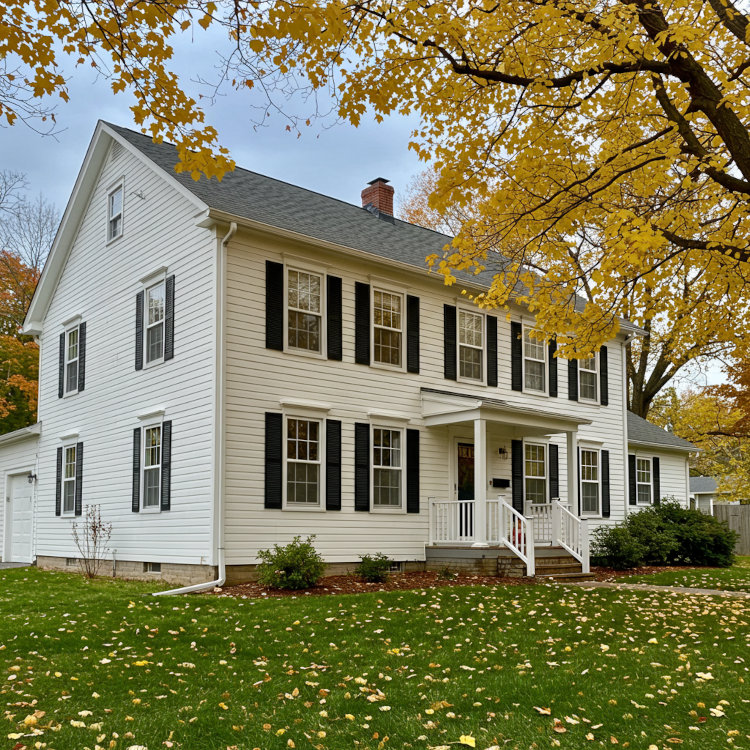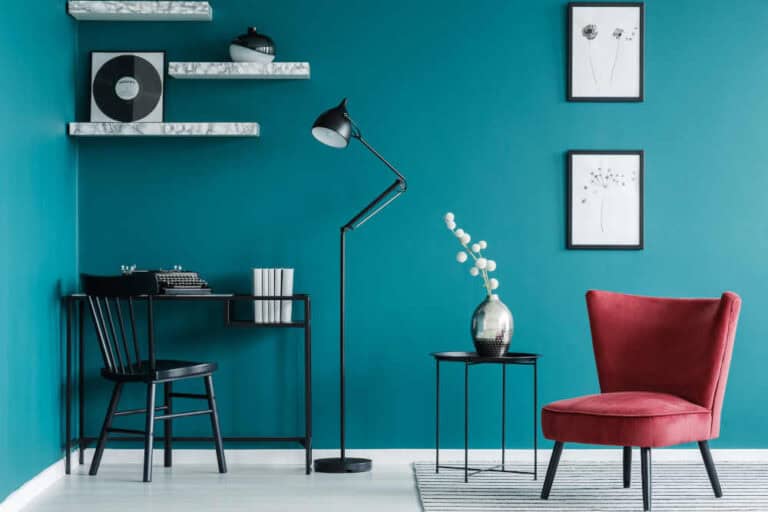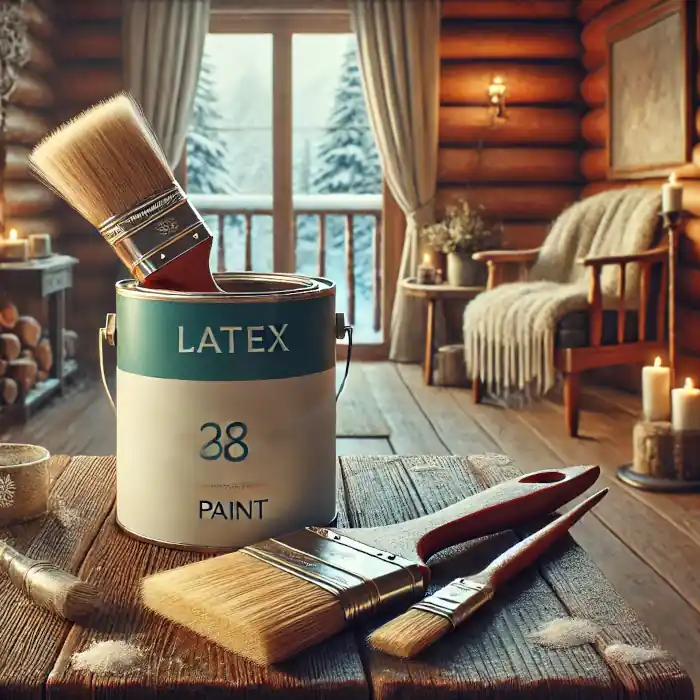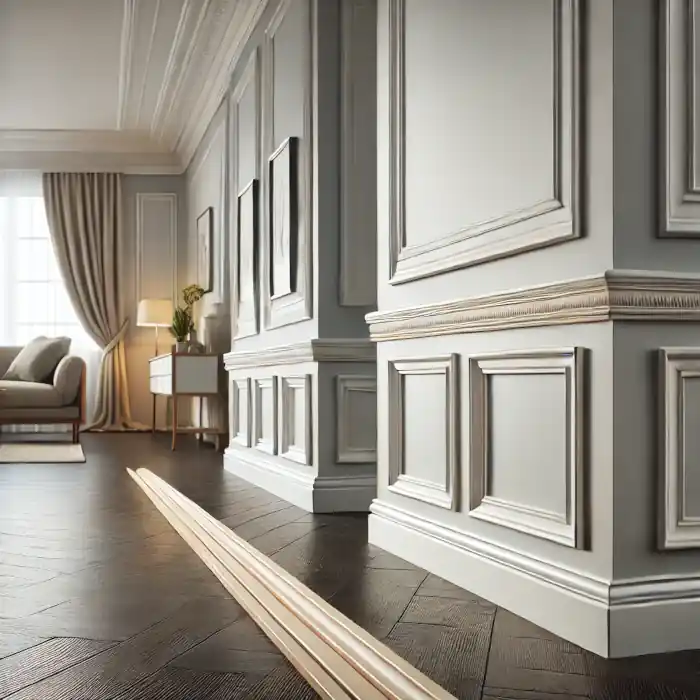As an Amazon Associate, I earn from qualifying purchases. Privacy Policy / Terms
There’s something about summer that makes a freshly painted house feel like a reset. Bright trim, clean siding, and color that pops in the sunlight—it’s the ultimate curb appeal upgrade. But before you pop open a can of paint, it’s worth remembering that a great summer paint job doesn’t start with a brush. It starts with prep.
Skipping the right prep in summer heat is a fast way to end up with cracked paint, uneven coverage, or worse—peeling that shows up before fall even hits. Whether you’re planning to do it yourself or hire professional painting contractors, here’s your go-to checklist to make sure your summer house painting project goes on smoothly, stays strong, and looks incredible for years to come.
Start with a Clean Slate: Washing the Exterior
Every successful paint job begins with a spotless surface. Dirt, pollen, mildew, and chalky residue can all prevent paint from sticking, and in summer, those elements are more aggressive than ever.
Power washing is the most efficient way to clean your home’s exterior. Be sure to use the right pressure settings for your siding type. Too much force can damage wood or push moisture behind panels. If your home has mildew or mold, adding a solution with a mild detergent or trisodium phosphate (TSP) helps break it down safely.
Even if you’re hiring painters near you, a well-prepped home shows you’re invested in the results and can reduce labor time (and costs) before the first stroke of the brush.
Inspect and Repair: Don’t Paint Over Problems
Summer sun reveals everything that cracks in the siding, old caulk lines pulling away from trim, or peeling from the last paint job that didn’t hold up. Before priming or painting, take the time to walk around your home and check for damage.
Scrape any flaking or peeling paint down to a smooth surface. Sand sharp edges and feather out rough areas to avoid visible lines under new coats. Re-caulk joints around windows, doors, and corners where the old sealant is cracking or missing.
If you’re unsure whether your siding needs a repair or full replacement in spots, this is when an experienced house painter can give you professional advice. Skipping this step almost guarantees you’ll be repainting again sooner than you planned.
Pick the Right Products for Summer Conditions
Not all paints are created equal, especially when you’re working under summer’s high temperatures. Look for high-quality exterior paints designed to withstand UV exposure, heat, and humidity. Many premium paints today include additives that resist fading and prevent mildew, making them especially well-suited for hot climates.
Timing also matters. Paint in the early morning or late afternoon when surfaces are cooler and direct sunlight isn’t baking the siding. Avoid painting when the temperature is above 90°F or during high humidity, both can cause blistering, bubbling, or poor adhesion.
Whether you’re tackling it yourself or bringing in professionals, using the right materials in the right conditions is the key to long-lasting, beautiful results.
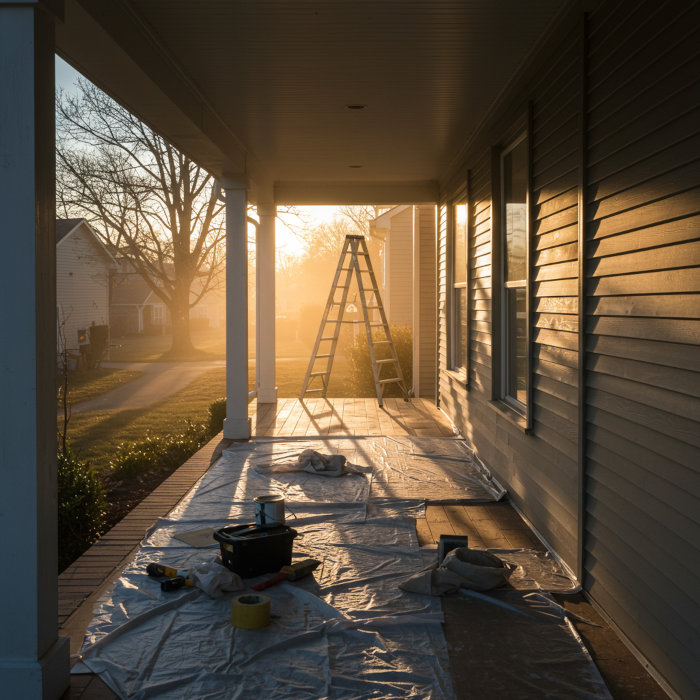
Protect What Shouldn’t Be Painted
It’s a small step with a big impact: cover shrubs, furniture, concrete, and any surfaces you don’t want accidentally splattered. Use drop cloths, plastic sheeting, and painter’s tape to protect fixtures, windows, and trim.
If you’re hiring a local painting company, they should handle this for you, but it never hurts to double-check. A clean, professional-looking job includes clean lines and zero overspray.
Prime Where Needed
Priming is essential on bare wood, raw siding, or patched areas where you’ve sanded or repaired damage. It helps paint adhere evenly and blocks stains or bleed-through from old paint colors.
If you’re doing a dramatic color change like going from deep blue to crisp white, a quality primer also ensures you don’t end up needing extra coats. For hot summer projects, look for primers labeled “quick-dry” or “hot weather approved” to stay efficient even when the temperature rises.
Test Before You Commit
Paint swatches can be deceiving, especially when they’re viewed indoors or in store lighting. What looks soft and subtle in a brochure might glow like a neon sign in full summer sun.
Paint a small area on your actual siding in several key lighting zones: one in shade, one in direct sunlight, and one in a transition spot. Let it dry and live with it for a day. The right color in the wrong light can throw off your entire curb appeal.
Let the Weather Work for You
Summer weather gives you longer daylight hours, faster drying times, and ideal conditions if you plan well. Watch the forecast and avoid days with high wind, rain on the horizon, or sudden humidity spikes. A rushed paint job during unstable weather is a recipe for early failure.
Most professionals will schedule your exterior painting during a stretch of stable conditions. If you’re doing it yourself, aim for consecutive dry days and be flexible if the weather changes; your siding will thank you later.
Call in the Pros When It’s Too Much
Painting the exterior of a home isn’t a small weekend chore; it’s a full project that requires planning, prep, and precision. If your house is two stories tall, has hard-to-reach peaks, or hasn’t been painted in a decade, this is where professional help saves you time and frustration.
Summer is also peak season for painters near you, so if you’re considering outsourcing the job, don’t wait to book. The best local painting companies fill their calendars fast when the weather turns warm.
Final Thoughts: Prep Smart, Paint Smarter
A smooth, long-lasting summer paint job starts with smart prep and even smarter planning. From power washing and repairs to product selection and timing, each step plays a role in how your paint holds up to the sun, heat, and time.
And if you’d rather skip the ladder, the prep work, and the guesswork? Reach out to trusted house painters near you and get the job done right the first time. Summer is for relaxing, not repainting.
Views Expressed DisclaimerThe views, opinions, and information presented in this article are for informational purposes only and do not necessarily reflect the official policies or positions of Crocker Home Painting Company. While every effort has been made to ensure accuracy, Crocker Home Painting Company is not liable for any errors, omissions, or decisions made based on the content provided. Readers are encouraged to consult professionals for specific advice or assistance related to their unique circumstances.

